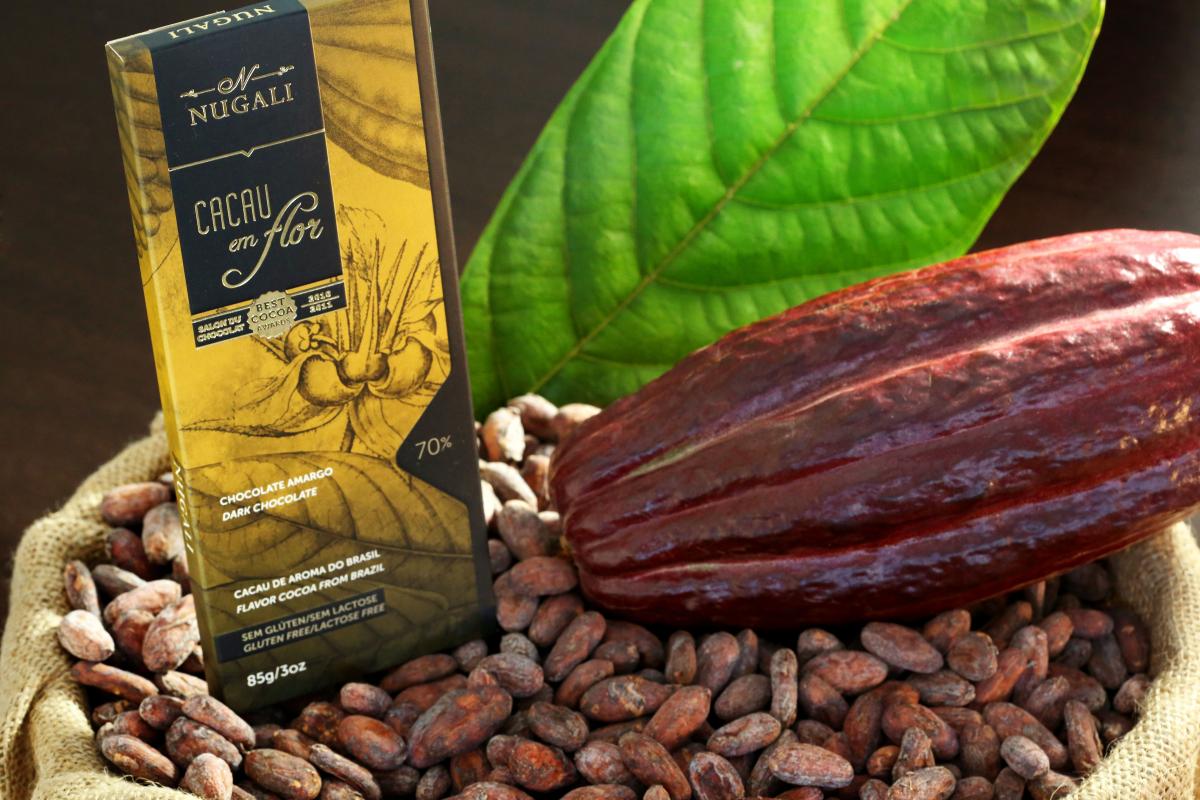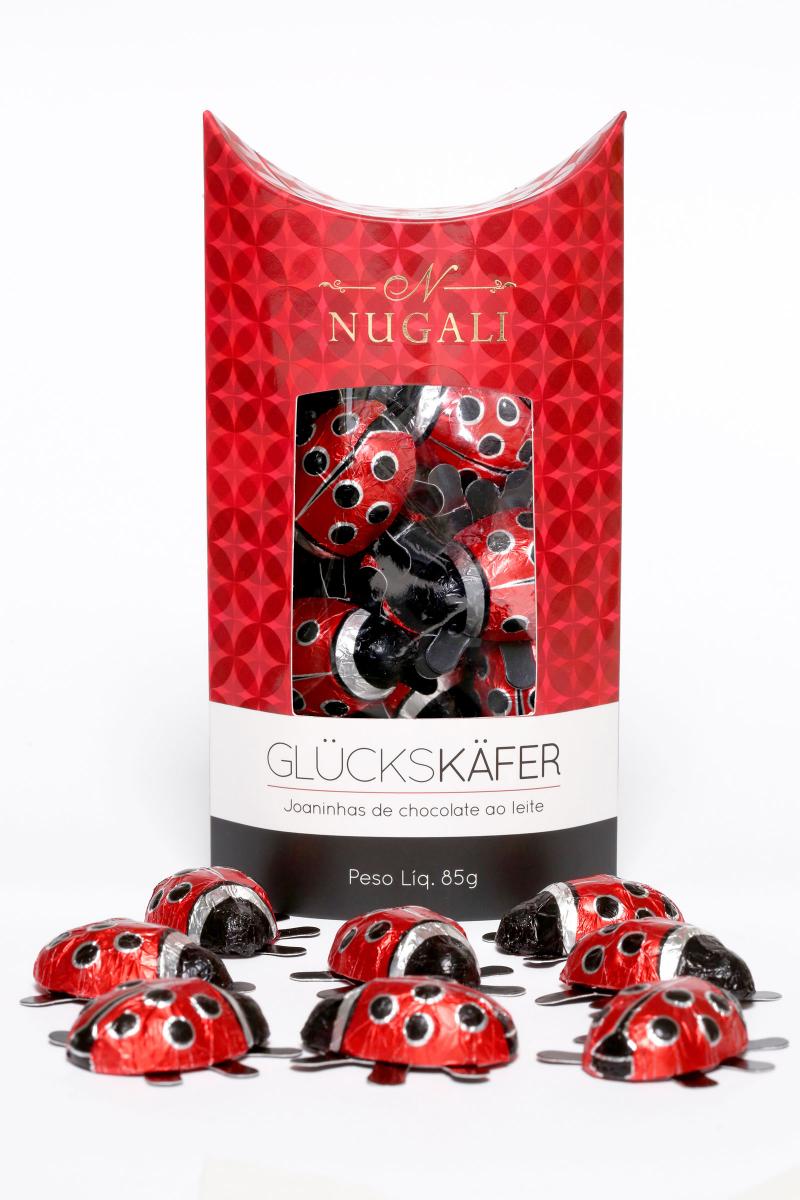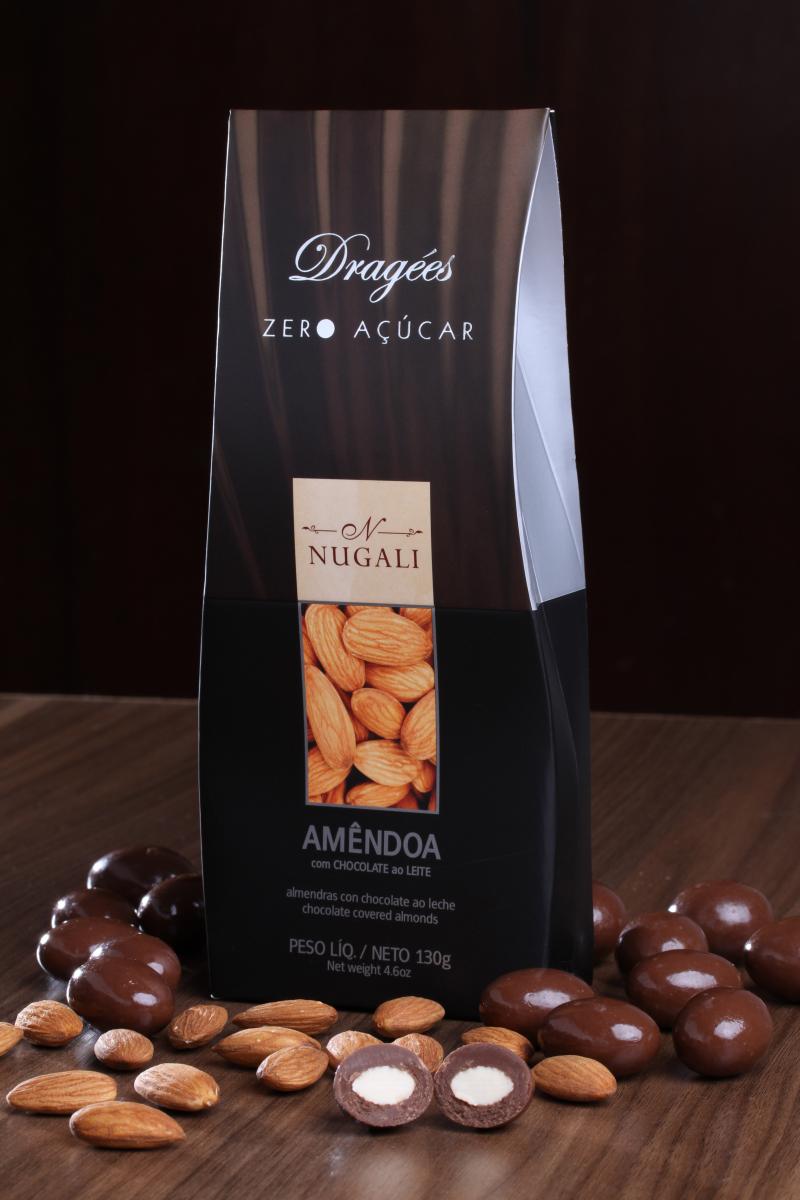IN THIS interview, Ivan Blumenschein, Export Manager at Nugali comments on the state of cocoa production in Brazil and on the demand for healthier confectionery. He talks about Nugali’s production, sustainability initiatives, and contributions to the industry.
How many types of sweets are currently available from Nugali?
Nugali has a mix of about 40 products, including bars, panned chocolates, pralines, and tablets for hot beverages. The production is about 150 tons/year. It is still a small amount, but we have been growing about 25 percent every year since its foundation, in 2004. Since the beginning, Nugali has been committed to produce its own chocolate, bean to bar, and use only “true” chocolate ingredients. We never used any replacement for cocoa butter or vanilla, nor artificial flavors, colors or conservatives. Therefore, we are seen as focused on the “artisan” or high quality chocolate market.

What is the volume of cacao produced from the farms? Does the company use up all cacao?
We have a very strong and lasting partnership with selected cocoa growers from Bahia, and purchase a high percentage of their best cocoa, marketed at a price premium as “fine flavor cocoa”. The cocoa from these farms that fails to meet these is sold by them as “regular” cocoa to other chocolate makers or cocoa liquor producers. Quality cocoa growing and chocolate making are two complex activities by themselves. It is very important for us to have strong ties with cocoa growers like João Tavares, a fourth-generation cocoa grower, with whom we have been working and learning together about cocoa and chocolate for over 10 years.
What are your thoughts on the likely shortage of cocoa in the future? And based on the current state of the cocoa production, is this possible?
There are efforts to increase the cocoa production in Brazil and in other countries. However, if the economic growth in developing countries surpasses the increase in cocoa production, we may more people wanting to buy chocolate and cocoa products, leading to a price increase. Of course the cocoa production is always subjected to risks, from climate to biological and political (specially in African countries). We do not foresee, however, a “shortage”. The cocoa stock rates do not indicate either that in 2017, for example, cocoa will be less available than today.
Are there sustainability initiatives worth highlighting?
Yes. The cocoa used in our products is grown in Southern Bahia. Unlike conventional farms, these cocoa trees are grown in the forest, in an agroforestry system. Only some smaller trees are removed and replaced with cocoa trees, the older and bigger native trees are preserved to provide the partial shade required by cocoa trees. Looking from above, it is hard to realize that it´s a plantation – looks just like the forest, and its biosystem is little affected. This technique has been responsible for preserving large areas of the “Mata Atlantica” rainforest, listed by Conservation International as one of the 34 world´s biodiversity hotspots.
It is more expensive to produce cocoa this way when compared to plantations in Africa, for example. However, we believe that this initiative should be praised, and without the cocoa as an economic option for these regions, they would be most likely converted to pastures – and all trees cut down.
It s also worth mentioning that the cocoa and chocolate industry in Brazil is socially fair – unlike in some cocoa growing countries, where conflicts and slavery are still concerns.

Does Nugali carry out the entire production process in-house? Which steps are outsourced?
The cocoa growing, fermentation and drying are done at our partner farms, in accordance to standards we developed and control together. All the following steps are carried out in-house. Our production is highly verticalized, both because many processes we carry out are not made by other companies, but mainly to ensure the quality control we need.
We’re familiar with the growing trend toward healthier snacks and sweets. This includes demand for products that are free from artificial ingredients, low on sugar, fat, and so on. Is this trend in anyway affecting local/global market share for chocolate and confectionery?
Yes, globally this trend is increasing the demand for high cocoa content chocolate, also products with less sugar and free from artificial ingredients. We understand that this movement benefits Nugali, because we have –since the beginning, in 2004 – focused on producing high cocoa chocolates, using only cocoa butter, no replacement fats, and free from artificial conservatives, flavorings and colors.
Brazil, as a developing country, has a large percentage of its consumers not yet concerned with quality, but the amount of people gradually more aware of what they eat is increasing. As the amount of food available has been increasing, it is inexorable that the consumer starts choosing the calories they ingest – both for health aspects and for the satisfaction they provide.

What is your view of the chocolate and confectionery market one year from now? What changes and trends will customers be seeing then?
A growing number of consumers is ever more concerned about health aspects of their food, but is not willing to replace “tasty” foods. This poses us the challenge of producing chocolates with more cocoa, less sugar, other health – appealing ingredients that still taste “indulgent”. We believe that the trends for quality and purity of ingredients, health benefits, sustainability and fairness of production are not going to fade, unlike more volatile fashions like “fleur de sel”, that change all the time. A large number of consumers, especially in the quality market, is avid to experiment with new tastes and textures. We believe that this is an opportunity for producers in countries like Brazil, so rich in little – explored flavors that are yet to be offered abroad.
With Nugali being one of Brazil’s leading manufacturers of chocolate, what would you consider as the company’s major contribution to the local cocoa/chocolate industry?
Nugali was the first company to produce in Brazil chocolates with 70 percent (and above) cocoa contents, and was the first to commercially produce bean-to-bar chocolates, and produced the first single origin Brazilian cocoa chocolate. By doing so, I´d say we were the first in Brazil to create a link between the consumer and the cocoa plantation, a necessary step for the development of a quality chocolate market.
We have also been the first chocolate maker in Brazil to work together with small cocoa growers to discuss and test the effects of different practices in the choice of cocoa varieties, bean fermentation and drying. We believe that this has an effect of stimulating the grower to aim for more quality. We have also pioneered paying quality premiums of over 100 percent the cocoa price. This has also signaled to the growers a way of making the pursuit for quality economically sustainable.
In your opinion, what support does the local industry need to maintain its competitiveness?
The economic scenario in Brazil right now is not very positive. Our taxes are one of the highest among developing countries, but our infrastructure is meager. Brazil´s complex tax system and bureaucracy have no parallel in the world. Our external politics is not focused in creating relevant trade agreements. All these add up to low global competitiveness. The country as a whole and the politicians specifically need to understand that the productive system is what supports the whole economy. This simple insight would be a major step.
Are there expansion plans for the company in 2016?
We are building a new factory (should be ready 2017), which will allow us to increase our production threefold or more, as the project is scalable. More and more, Nugali is developing products strongly connected to Brazilian ingredients and flavors, which we believe is a way to create appeal in the external market. A partnership in the US has already begun operating, and we are looking to increase the number of countries where our products can be available.
Shop Women's Sneakers by Brand













